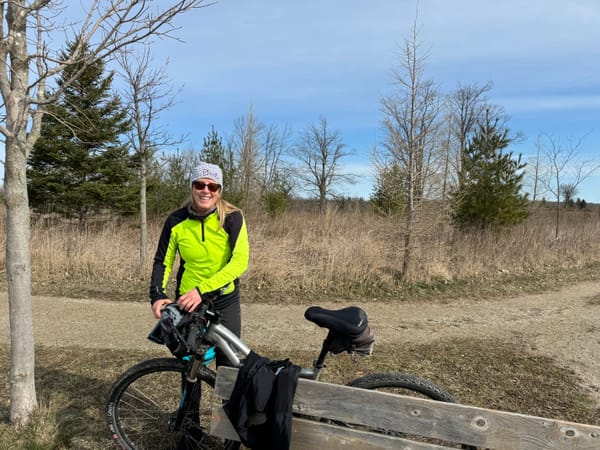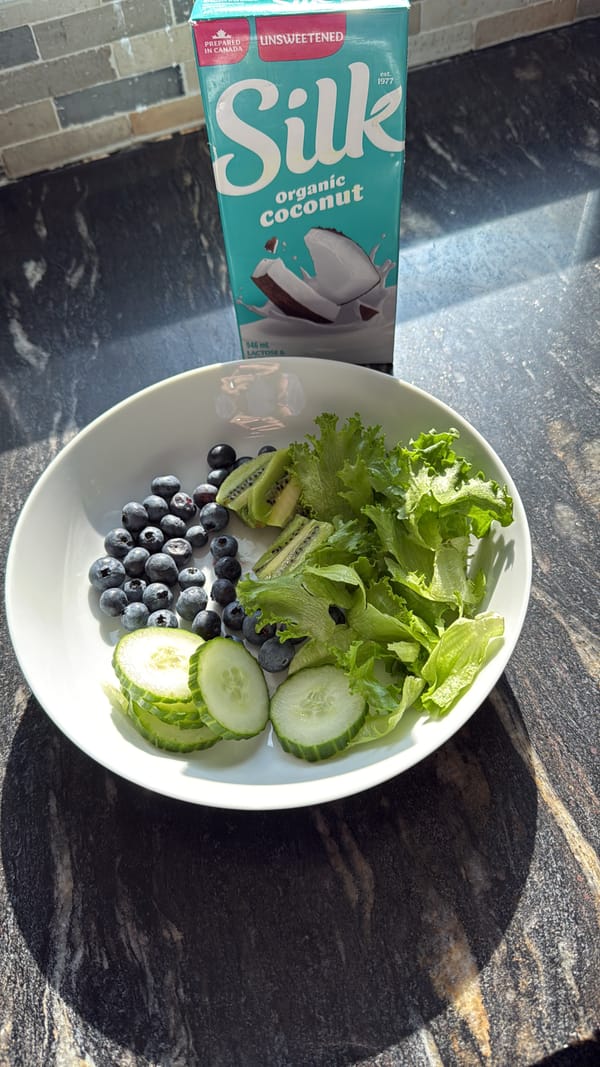Why February is the perfect time to create micro goals for stronger bones!

Whether you’re new to thinking about your bone health or have been focused on it for years, it’s always a good idea to take stock of the efforts made to support ourselves throughout our entire healthspan.
February is a month that can be associated with “the blues”, but with some simple mindset shifts, it can be a month of opportunity! Preventative Health Awareness Month (also in February) presents a 28-day period (29 in a Leap Year) to focus on our health goals for the year. Maintaining strong bones is crucial for overall health, especially as we age, so to help you remember to think about your bones, we bring you “Femur-ary”
Osteoporosis and other bone-related issues can have significant impacts on mobility and quality of life. Fortunately, improving bone density, and more importantly the quality of our bones, doesn't have to involve drastic changes. Instead, setting micro goals can make the process manageable and sustainable. Here are some effective micro goals you can adopt to enhance bone density and quality.
Please remember to discuss your unique health picture and goals with your healthcare provider to ensure you’re implementing changes in a safe way for you!
1. Incorporate Weight-Bearing Exercises
Goal: Add 10 minutes of weight-bearing exercise three times a week.
Weight-bearing exercises, such as walking (perhaps try a weighted vest for better bone health), jogging, dancing, or even gardening, stimulate bone formation. Start small by committing just 10 minutes to one of these activities. Gradually increase the duration or frequency as you become more comfortable.
2. Focus on Strength Training
Goal: Include two strength-training sessions per week.
Strength training is essential for building muscle, which in turn supports bone health. You don’t need to lift heavy weights; bodyweight exercises like squats, push-ups, and lunges are excellent starting points. Aim for two sessions per week, targeting major muscle groups. If possible, find a trainer who specializes in bone-centric training to help you maintain proper body mechanics – form matters! Some prefer to work out solo, but some find it easier to stay motivated with a friend! Find an accountability partner to share your strengthening journey with!
What’s the difference between weight-bearing exercises and strength training?
Weight bearing exercises, also known as impact exercises, load the joints and muscles by holding your body up against gravity. Examples include walking, hiking, jogging, jumping, stair-stepping and aerobics. These exercises can be low, moderate or high impact depending on your fitness level.
Strength training, also known as resistance training, builds muscle by using your body to exert force against a physical load. Examples include lifting weights, using resistance bands, holding a yoga pose or using your own body weight to do push-ups and planks.
A combination of weight-bearing and strength training is best for promoting bone strength. Weight-bearing exercises stimulate bone growth, while strength training builds muscle mass, which is linked to bone density.
3. Improve Nutrition with Calcium and Vitamin D
Goal: Add one calcium-rich food and one source of vitamin D to your daily diet.
Calcium is vital for bone health, while vitamin D helps the body absorb calcium. Set a micro goal to incorporate one serving of calcium-rich food (like yogurt, cheese, or leafy greens) and one source of vitamin D (such as fatty fish or fortified foods) into your meals each day. Research other supplements that can be incorporated to help support your goals (for example K2 and Collagen). Consult a healthcare provider if considering adding new supplements to ensure they will help and not hinder you!
4. Stay Hydrated
Goal: Drink an extra glass of water each day.
Hydration is often overlooked, but it plays a role in overall health, including bone health. Aim to add one more glass of water to your daily intake. Proper hydration helps maintain the balance of minerals in your bones.
5. Limit Caffeine, Alcohol & Carbonated Drinks
Goal: Reduce caffeine or alcohol intake by one serving per week.
Excessive caffeine and alcohol can negatively affect bone density. Consider cutting back by one serving each week. This could mean switching from two cups of coffee to one, or limiting alcohol to one drink on weekends.
As a complementary goal, investigate coffee substitutes (mushroom, dandelion, turmeric lattes etc.) as well as alcohol-free beverage alternatives!
6. Get Outside for Sun Exposure
Goal: Spend 15 minutes outside each day.
Sunlight is a natural source of vitamin D, which is crucial for bone health. Make it a micro goal to spend at least 15 minutes outdoors each day, whether it’s a walk during lunch or relaxing in the garden.
7. Practice Good Posture
Goal: Set reminders to check your posture throughout the day.
Good posture can help prevent bone issues related to misalignment. Set reminders on your phone or computer to check your posture at regular intervals. Standing tall not only protects your bones but also improves overall body mechanics.
8. Prioritize Sleep
Goal: Establish a consistent sleep schedule.
Quality sleep is vital for overall health, including bone health. Set a micro goal to go to bed and wake up at the same time every day, aiming for 7-9 hours of quality sleep. Consider creating a relaxing bedtime routine to help you unwind.
9. Track Your Progress
Goal: Keep a weekly journal of your activities and nutrition.
Tracking your micro goals can help you stay accountable and motivated. Use a journal or an app to record your activities, meals, and any changes you notice in how you feel. Celebrate small victories to keep your spirits high!
10. Educate Yourself
Goal: Read one article or watch one video about bone health each week.
Knowledge is power! Set aside time each week to learn more about bone health, nutrition, or exercise. Understanding the importance of your micro goals will keep you motivated and engaged in your journey.
Conclusion
Improving bone density and quality doesn’t require a complete lifestyle overhaul. By focusing on micro goals, you can make gradual changes that lead to significant improvements over time. Start small, celebrate your progress, and watch your bone health (and overall health) thrive! Remember, it’s about consistency and making choices that support your body’s needs.
Here’s to stronger bones and a healthier you!





